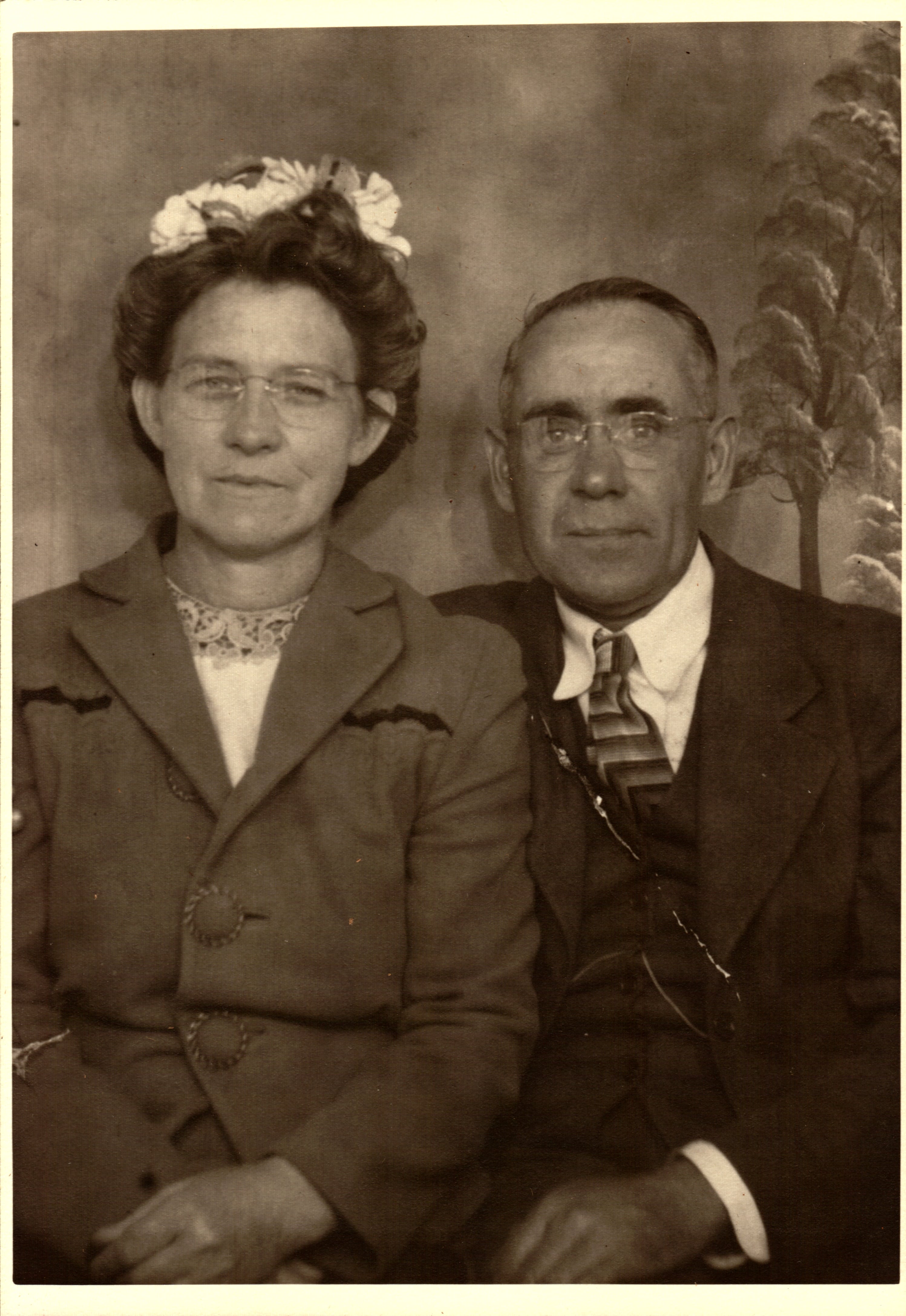There were parades in that glorious spring of 1919. In New York and Washington, D.C., in small towns and state capitals, ranks of soldiers, formed in companies and led by the army band, marched down Main Streets across the United States. In Topeka, the officers and men of the 137th Infantry “All-Kansas” Regiment stepped with heads high, through cheering crowds, flags waving.
But Private Potts was not among his comrades of Company M. After disembarking the Manchuria at Hoboken, April 23, the Thirty-Fifth Division entrained to Camp Upton, New York. In the last week of April, all replacement soldiers, of which B. F. Potts was one, were detached from the division.
Private Potts was put on a southbound train to Fort Oglethorpe, Georgia, where he was discharged May 12. He was given train fare for home and remaining pay, plus a sixty-dollar bonus.
In a small town in Middle Tennessee, Jack and Ellen Potts stand on a platform beside the tracks. Susie, at twenty, their youngest child and only daughter, is there. As is their eldest, William Rufus, with his wife Annie and their children. Ruby and Jack run about, shoes clomping on wooden planks. Annie holds fifteen-month-old Bertha. Roy Albert, who came home the month before, now awaits his brother. Jack and Ellen’s youngest boy, Clyde Brake, would return in September.
A slim young man in uniform, plaited overseas cap cocked on his head, steps from the train as it screeches to a stop. He is clean-shaven and smiling, ears perked. The steam whistle announces a hero’s arrival, a son’s return.
Two years later, October 8, 1921, Benjamin Franklin Potts married Lucinda Mae Tanner. They had four children: daughters Viola Francis, called “Nanna” by her grandchildren, Imogene Brownie, who died at age three from scarlet fever, and twin boys Jesse Calvin and John Wesley. Ben and Mae’s descendants number thirteen grandchildren and thirty-six great grandchildren, plus fifty-eight two- and three-times great grandchildren to date.
In following years, Ben moved the family several times between Tennessee and Michigan for work. In Tennessee, he worked for the railroad, most notably as a detonation man, making way for new track with dynamite. In Detroit, he worked for Cadillac, from which he retired in 1962.
In 1942, at age forty-seven, Ben Potts registered for the draft the second time in his life.
“Grandpa Ben wanted to go fight in WWII and registered, but they wouldn’t take him.”
—Bruce Potts
Following retirement, with the children grown, Ben and Mae moved back to their home town, Tennessee Ridge, Tennessee, where they lived in a red brick house. They tended a vegetable garden in the back yard and kept chickens in a coop. Ben drove Mae to church every Sunday. They had frequent family visits.
After Sunday dinner, the family takes refuge from the warm summer sun on the carport. Children, grandchildren, and their children sit in lawn chairs, sipping Granny’s iced tea from plastic cups. Grandpa Ben hangs his cane on the chair’s arm and cuts a plug of tobacco with a pocketknife. A fragrant breeze blows from the rose garden, and Nanna asks:
“Well, Daddy, what did you think about France?”
“Grandpa brought his dented helmet home to Tennessee Ridge. Granny used it as a water bowl for the chickens until it rusted out.”
—Bruce Potts
A Very Muddy Place
WAR STORIES
An intimate account of a soldier’s experience in World War I, A Very Muddy Place takes us on a journey from a young man’s rural American hometown onto one of the great battlefields of France. We follow Private B. F. Potts with the 137th US Infantry Regiment through the first days of the Meuse-Argonne Offensive. We discover a personal story—touching, emotional, unforgettable.
In 1918, twenty-three-year-old Bennie Potts was drafted into the US Army to fight in the World War. He served with the American Expeditionary Force in France. At home after the war, he married and raised a family, and the war for his children and grandchildren became the anecdotes he told them.
A century later, a great grandson brings together his ancestor’s war stories and the historical record to follow Private Benjamin Franklin Potts from Tennessee to the Great War in France and back home again.
Available in hardcover, paperback, and e-book.
Disclosure: This page and linked pages contain affiliate links to Bookshop, Amazon, Apple, Barnes & Noble, and Kobo. As an affiliate of those retailers, Stephen earns a commission when you click through and make a purchase. Thank you for your support.


